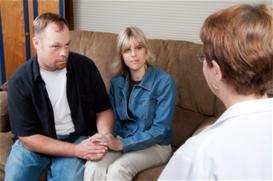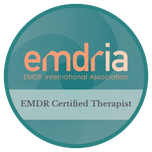Catherine M. Blake, MA, LPC, Certified Therapist in EMDR
Brain Injury Counseling |
How I work |
|
If you are a brain injury survivor, family member, or friend, Relax! You have found someone to understand and help you through the maze of physical and emotional challenges that come with a Brain Injury from a disease or an accident. Therapy can help with the neurological impairment from Multiple Sclerosis (MS), stroke, Parkinson’s, and other diseases.
Accident recovery can be challenging and frustrating - I can help because I have been there. My mild Brain Injury from a car accident was a blessing in disguise. My life is better than it was before my injury. With my help, you, too, can appreciate some of the gifts while minimizing the effects of the challenges to yourself or someone you care about. I work with individuals, couples whose lives are touched by these challenges. Our journey together would be dictated by your individual needs since these situations can vary a great deal. Some common problems can include: fatigue, slow brain processing, and emotional volatility. Brain Injury Alliance ProviderCathy is a member of the Brain Injury Professional Network (BIPN), a service of the Brain Injury Alliance.
|
The way I work is by first building a relationship and creating safety in my office. My approach is gentle, laid back or more structured, depending on your needs. I have lots of tools to help, but only you and your mind/body can tell what will work for You. Your body posture, awareness, and issues tell me a lot about how to best guide you in healing.
Resources If you have medical records or need referrals to specialists, I can help with some of that also. If I don’t have the answer, I know people and organizations that do! Though I don’t have any medical expertise per se, your records can help me understand your challenges and situation. The brain can adapt and reroute functions to different places (neuroplasticity). Support Next, I help you identify your sources of support, both internal and external. Some of these external supports include caregivers, loved ones, friends, pets, medical providers, etc. Using your body Internally, your body has lots of ways to cope which you may not be aware of. Deep breathing, grounding, centering, body movement, visualizing a safe place, body scan, and other ways of managing your emotions will be validated and taught. Some survivors want to tell their story, also. All of us want to have meaning and purpose in our lives. Why did I survive the injury, illness, or other challenge? Trauma People who have life-threatening situations also have trauma (when we feel helpless and overwhelmed, especially). Neurological challenges can sometimes make it harder for us to bury these memories. There may be a mental illness (which wasn’t there before) or more fear, anxiety, and/or anger present. Healing For your healing, I would work with you on identifying which body-based trauma healing modality would be best for you and your body/mind. Mindfulness Mindfulness also needs to be present for healing (I can teach this if you don’t already know how). EMDR I use EMDR (Eye Movement Desensitization – see EMDR counseling for more information) and Sensorimotor Psychotherapy (SPI) – see Pat’s website for my listing and description of how it works. Coping Coping with your challenge can be a stepping stone to more awareness, deeper healing and a greater purpose in your life! Call Cathy at (303) 464-9803 for a free evaluation.
|

